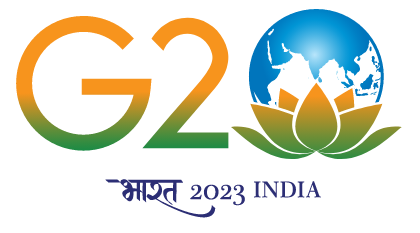Skill India is an initiative of the Government of India which has been launched to empower the youth of the country with skill sets which make them more employable and more productive in their work environment. The Governing Council of National Skill Development Mission (NSDM) is chaired by the HonÔÇÖble Prime Minister.
India is a country today with 65% of its youth in the working age group. If ever there is a way to reap this demographic advantage, it has to be through skill development of the youth so that they add not only to their personal growth, but to the countryÔÇÖs economic growth as well.
Skill India offers courses across 40 sectors in the country which are aligned to the standards recognised by both, the industry and the government under the National Skill Qualification Framework. The courses help a person focus on practical delivery of work and help him enhance his technical expertise so that he is ready for day one of his job and companies donÔÇÖt have to invest into training him for his job profile.
The Skill Mission launched by the Prime Minister on 15 July 2015, has gathered tremendous steam under the guidance of Shri Dharmendra Pradhan, Minister for Skill Development and Entrepreneurship and Shri Rajeev Chandrasekhar, Minister of State for Skill Development and Entrepreneurship. More than one crore youth join the Skill India mission annually.
For the first time since IndiaÔÇÖs independence, a Ministry for Skill Development & Entrepreneurship (MSDE) has been formed to focus on enhancing employability of the youth through skill development. The skill ecosystem in India, is seeing some great reforms and policy interventions which is reinvigorating and re-energising the countryÔÇÖs workforce today; and is preparing the youth for job and growth opportunities in the international market. The HonÔÇÖble Prime MinisterÔÇÖs flagship scheme, Pradhan Mantri Kaushal Vikas Yojana (PMKVY) alone, has till date seen close to 1.37 crore people get skilled and prepared for a new successful India. More than 720 Pradhan Mantri Kaushal Kendras (PMKKs) have been established till date to support skill development infrastructure in the country. These are state of the art centres of skilling with latest pedagogy and use of technology.
MSDE also recognises and certifies skills acquired through informal means through its Recognition of Prior Learning (RPL) program under PMKVY, bringing about a major shift from unorganised sector to an organised economy. So far more than 50 lakhs people have been certified and formally recognised under the programs.
Skill India harbours responsibility for ensuring implementation of Common norms across all skill development programs in the country so that they are all standardized and aligned to one object. The ITI ecosystem has also been brought under Skill India for garnering better results in vocational education and training.
The Ministry has also actively made comprehensive reforms to the Apprentices Act 1961, where maximum control has been given to the private sector so that the industry standards are maintained as per market requirement. More regulatory rights have been given to the industry where they can even set the target for apprentices that they require. This is a big opportunity that industry should leverage and benefit. MSDE also introduced a scheme called National Apprenticeship Promotion Scheme (NAPS) in August 2016 to promote this most sustainable model of skill development and industry connect. Under this scheme, the Government of India provides financial benefits for apprenticeship. More than 7 lakh apprenticeship trainings have been conducted so far.
MSDE has also introduced the Pradhan Mantri Yuva Yojana (PM-YUVA) which aims to educate and equip potential and early stage entrepreneurs and catalyse a cultural shift to support aspiring entrepreneurs. The candidates are linked to the MUDRA scheme of the government to get assistance in initial business funding.
Skill India is no more just limited to the domestic market but is actively engaging with countries across the world to promote cross geographical exposure and opportunities in the international market. India is a young nation and a skilled workforce will be able to certainly cater to not only the market demand within the country but also the global market demands.
The success of a nation always depends on the success of its youth and Skill India is certain to bring a lot of advantage and opportunities for these young Indians. The time is not far when India will evolve into a skilled society where there is prosperity and dignity for all.















